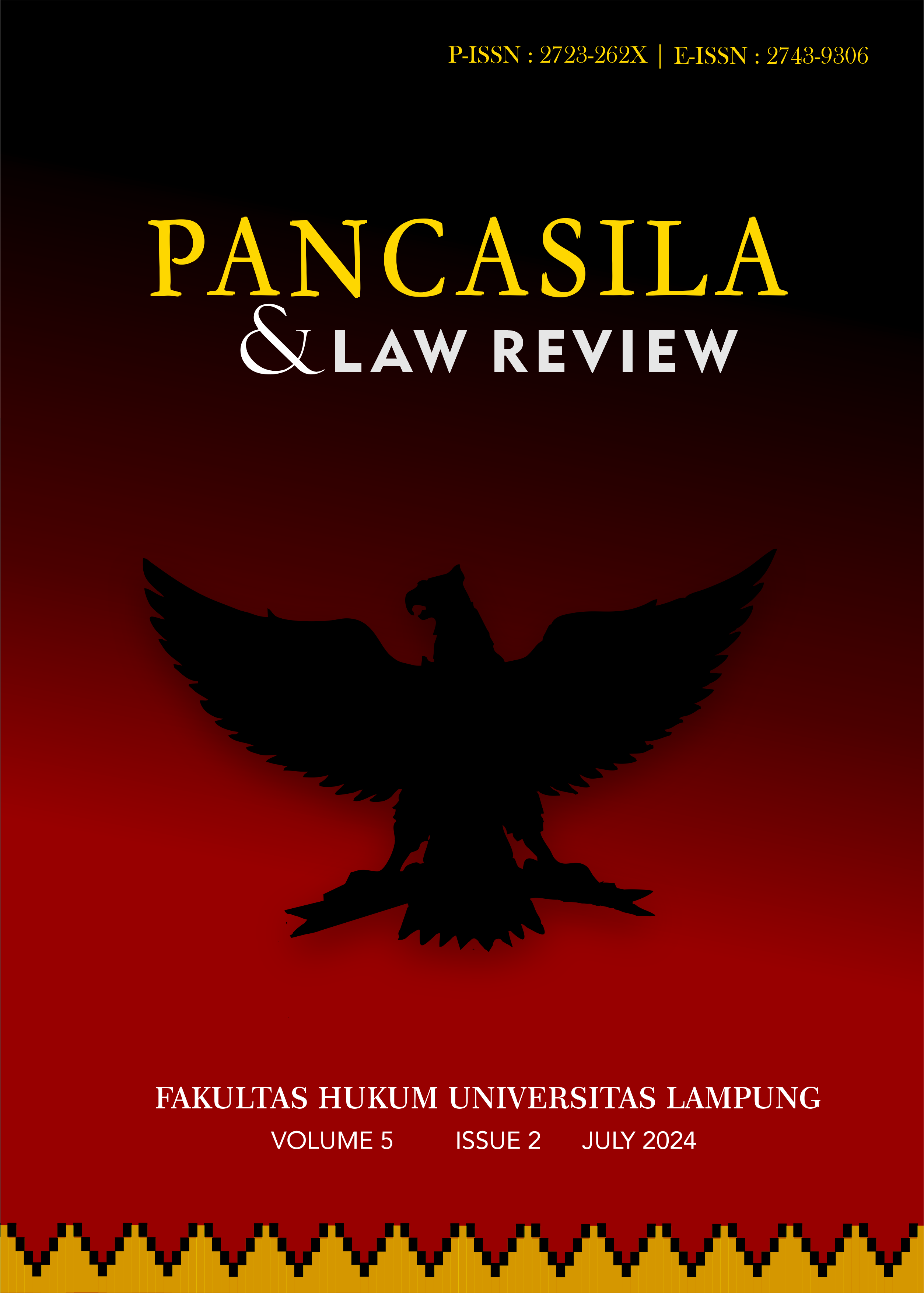Artikel (63)
This study examines the relationship between customary law communities and the ideology of Pancasila within Indonesia’s legal philosophy. Article 18B Paragraph (2) of the 1945 Constitution affirms state recognition of customary law communities and their long-standing social, legal, and cultural sy...
Pancasila and Law Review; Vol 6 No 1 (2025): Issue In progress (January 2025); 45-56 | 2025
Phishing in Indonesia presents significant risks to privacy and data security. This study employs a normative juridical approach to analyze the protection of personal data, with attention to both preventive and repressive legal mechanisms. It assesses the effectiveness of Law No. 27 of 2022 on Perso...
Pancasila and Law Review; Vol 6 No 1 (2025): Issue In progress (January 2025); 15-44 | 2025
The ratification of Indonesia’s new Criminal Code (KUHP) on December 6, 2022, has sparked concerns over potential restrictions on human rights, particularly the right to freedom of expression. These concerns arise from the reintroduction of the article on insulting the president, which had been an...
Pancasila and Law Review; Vol 6 No 1 (2025): Issue In progress (January 2025); 1-14 | 2025
Children are often vulnerable targets for adult aggression, resulting in various forms of violence including physical abuse, neglect, pornography, psychological abuse, and sexual violence. In Depok City, where such cases occur, the local government provides protection and assistance to child victims...
Pancasila and Law Review; Vol 5 No 2 (2024); 151-160 | 2025
The unresolved conflicts between Islamic law, the Civil Code (KUHPer), and customary (adat) law present significant challenges in integrating bilateral inheritance principles into Indonesia’s national legal framework. The existing pluralistic inheritance system often falls short in realizing socia...
Pancasila and Law Review; Vol 5 No 2 (2024); 123-134 | 2025
This article examines the division of concurrent authority between the central and local governments in Mandatory Government Affairs and its implications for fulfilling citizens’ basic service rights. Using an interdisciplinary legal approach, the research explores the persistence of centralized b...
Pancasila and Law Review; Vol 5 No 2 (2024); 135-150 | 2025
Border areas will continue to lag behind other regions without proper management. The limited natural resources in these areas pose a challenge for development. Through national strategic projects, border regions are expected to compete and enhance the well-being of their communities. This research ...
Pancasila and Law Review; Vol 5 No 2 (2024); 109-122 | 2025
Jimly Asshiddiqie argued that Indonesia should have declared a state of emergency during COVID-19 to ensure effective governance, asserting that, without it, the government lacked legitimacy to implement restrictive policies. This paper critically examines this claim through a doctrinal and regulato...
Pancasila and Law Review; Vol 5 No 2 (2024); 85-108 | 2025
Climate change poses a serious threat to all nations. According to the World Economic Forum's Global Risk Report (2019), climate change ranks among the most significant global risks, contributing to natural disasters, extreme weather events, food and water crises, biodiversity loss, and ecosystem co...
Pancasila and Law Review; Vol 5 No 2 (2024); 71-84 | 2025
Sexuality is defined as one's thoughts, feelings, desires, and actions toward other people. The way a person communicates their sexual wants is what makes them human. It is possible to classify sexuality as a human right that each individual possesses, and that is immune to external interference. Th...
Pancasila and Law Review; Vol 5 No 1 (2024); 61-70 | 2025


